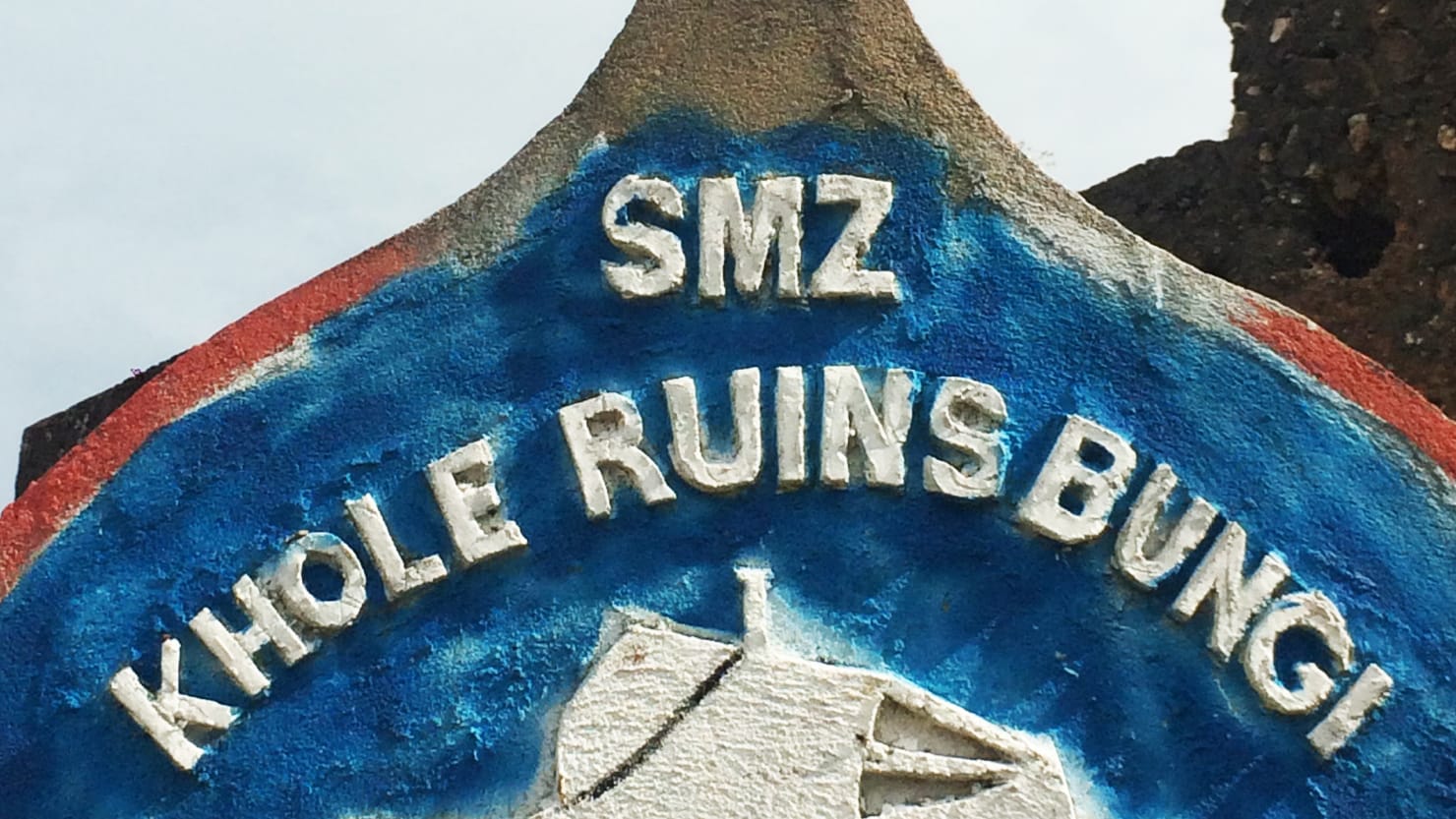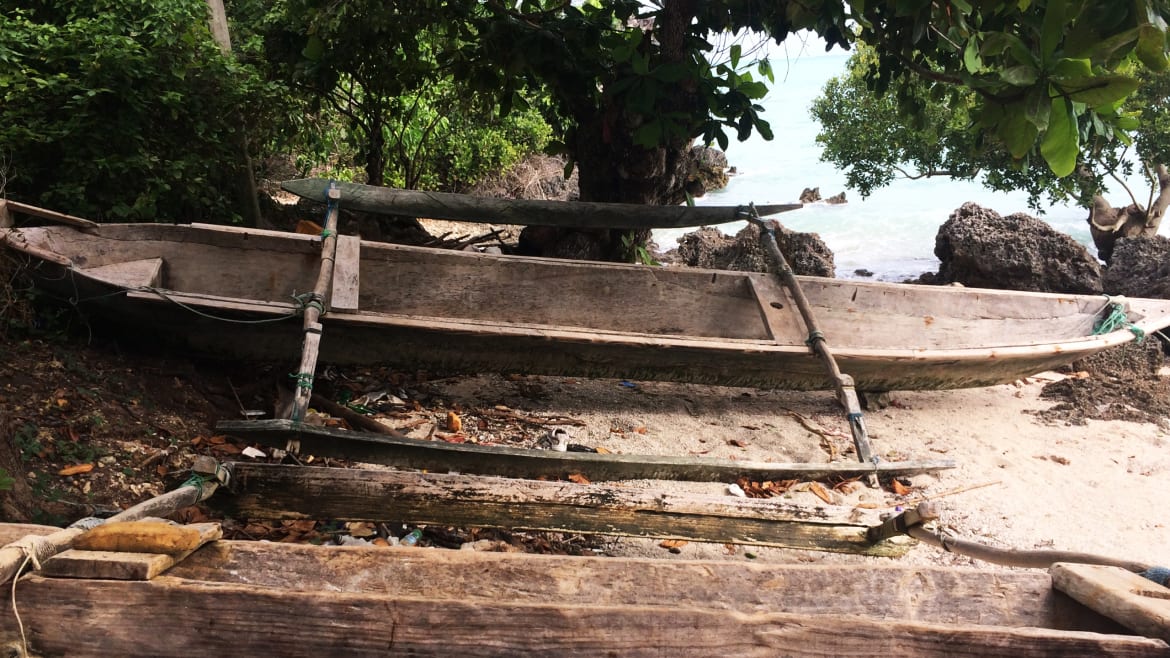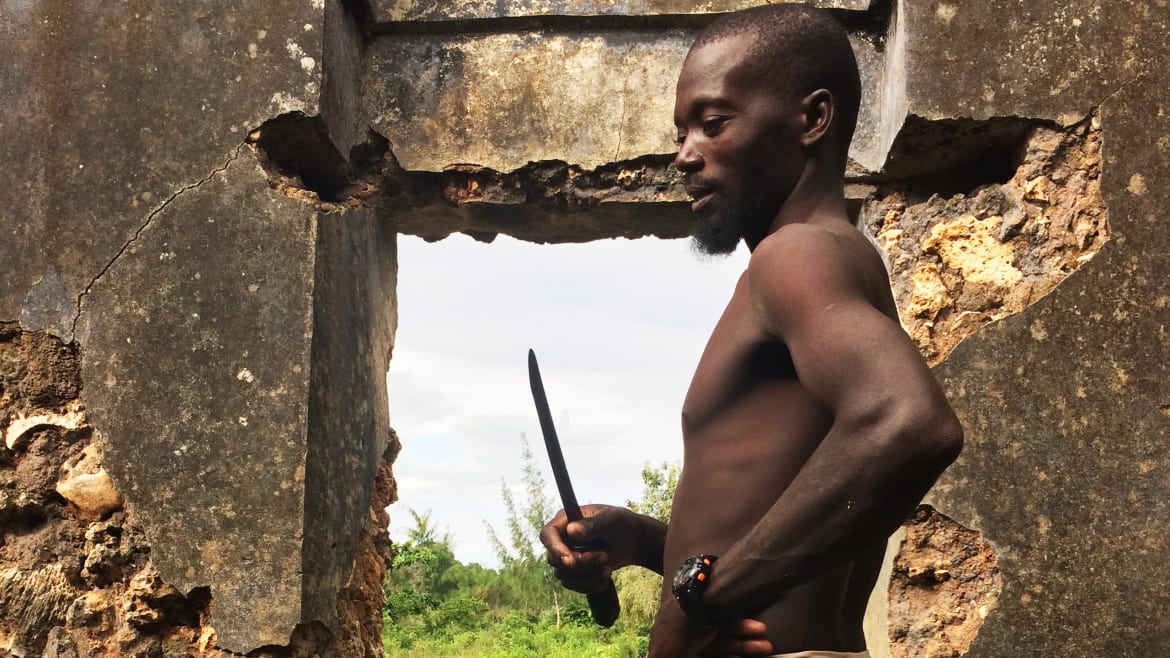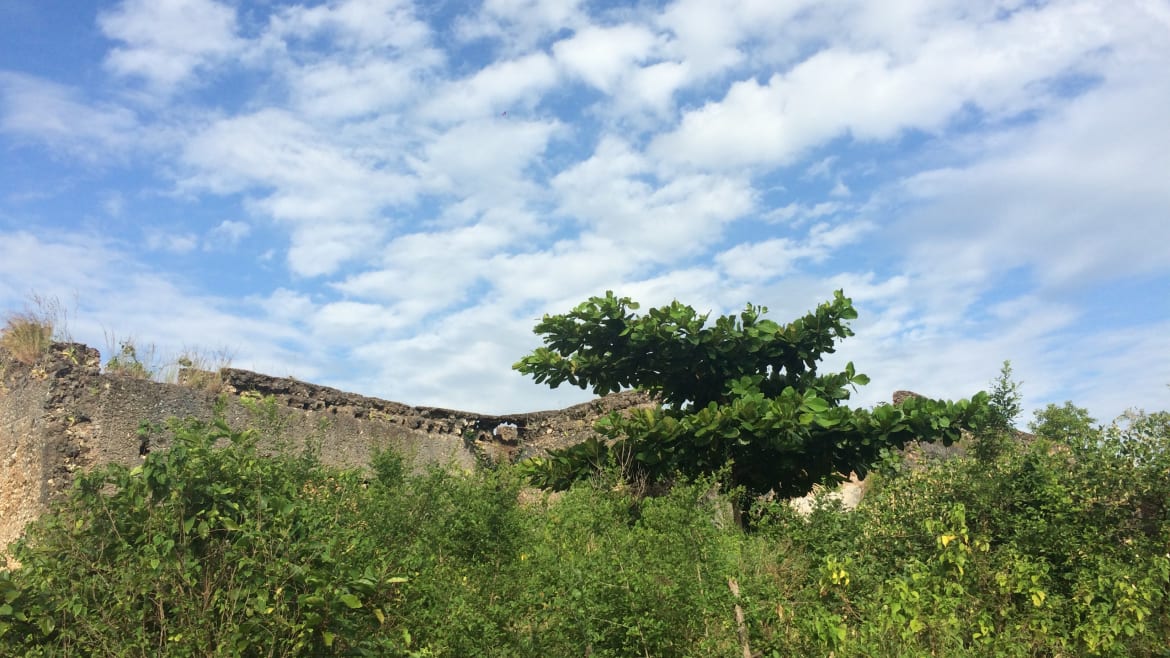Southeast of Zanzibar City one finds the ruins of the mansion Bi Khole erected. It is all that remains of a haven built by a princess whose lifestyle exposed her to sexist taunts.

Zipping toward Zanzibar’s spectacular beaches on the rambling, pitted roads heading southeast from Stone Town, Zanzibar City, it’s easy to miss the turn down the narrow passage. Near the village of Bungi, down a rarely-tread path covered in a canopy of mango trees that reach across the road like clasped hands, one finds the palatial ruins by the sea of a mansion built by Bi. (meaning Lady) Khole, a rebel princess who never married or had children and ran her own clove business.
But it’s worth the turn. Walking through the sun-soaked ruins of Khole’s 19th century coral-rock mansion conjures up the grandeur and power of Zanzibar’s royal past.
The Sultans of Oman ruled the archipelago of Zanzibar along the Indian Ocean in East Africa as far back as the late 17th century, but it wasn’t until around 1840 that Said bin Sultan officially shifted the seat of his empire from Muscat, Oman to Zanzibar, establishing the elite city of Stone Town on the shores of the Indian Ocean. At its peak in the 19th century, Oman extended its rule across the Persian Gulf to modern-day Iran and Pakistan and as far south as Zanzibar.
According to Historian Ramadan Ali Machano, Director of Education Services with the Department of Museums and Antiquities with the Zanzibar Revolutionary Government, Said Bin Sultan was known to sleep with over 70 women in his harem and fathered at least 36 children, including a daughter known as Seyyida Zam-Zam, a woman with Abyssinian roots. In 1856, Zam-Zam married her distant cousin, a wealthy landlord named Hamoud bin Ahmed bin Seif, and together they moved to the fertile Bububu area located 10 kilometers north of Stone Town to start their family.

Amanda Leigh Lichtenstein
Khole, their first child, was born in 1860, a year after the dramatic 1859 family feud during which Khole’s uncle Barghash attempted to usurp his elder brother Majid, the rightful first Sultan of Zanzibar, in a jealous vie for power. Barghash was eventually banished to Mumbai, India for two years. Khole, just a toddler then, likely played with her big sister Moza in the lush lands of Bububu.
Khole’s father owned huge swaths of fertile land that stretched from Stone Town to the northeast village of Bububu to the southeast village of Bungi (approximately 30 kilometers and hundreds of thousands of acres). He mainly cultivated cloves, Zanzibar’s largest export supported by a centuries-old slave trade that surged in the mid 1800’s under the Sultans of Zanzibar. The slave trade was officially abolished by 1876, but slavery in practice continued until the end of the 19th century and an illegal slave market persisted on the islands of Zanzibar.

Amanda Leigh Lichtenstein
When Khole’s father died in 1879, she surprised everyone by taking over his expansive businesses as a clove exporter and landowner, leaving Moza behind to care for their mother in Bububu. Royal through her mother’s lineage in a patrilineal system, Khole knew that securing her land inheritance was the closest she’d get to living like a princess. Khole sought out a fertile green spot near her clove plantations in Bungi along the Indian Ocean and ordered her inherited slaves to build her a palace by the sea.

Amanda Leigh Lichtenstein
From the moment Khole stepped into her own command at the age of twenty as a childless single woman in charge of over 150 people to conduct her household and business affairs, she lived in singular splendor as a rebellious clove dealer, huntress, and woman of leisure, and did so for decades. Her freedom was inextricably linked to a complex system of slavery and indentured servitude that defined this period in history.
Stepping onto the estate, it’s easy to imagine cloves laid out to dry in the grass on white sheets under a blazing sun. Walking through the main entrance to the ranch-style coral-rock home into the double-arched living room with crumbling walls, history comes alive. The seven-room mansion, defined by large, ground-level Arabesque windows, boasted an elaborate plumbing system connected to a private well, allowing for running water in the bath and kitchen.
Machano points to the wide inner baraza (oversized large slabs of stone) where he says Khole lounged with her neighbors, mostly girls and women who came to the house by invitation to braid each other’s hair, stitch mikeka (woven mats) and tell stories. With its sea views and acres of green, Khole’s mansion was all about leisure and luxury. A huntress, she roamed the grounds full of dense foliage with her guards catching tiny antelope and flying foxes.
Rumors, jokes, secrets and lies of mythic proportions lingered around Khole long after she died in 1917 at the age of 57. For one, as for those mango trees stretching a span of three and a half kilometers—legend has it that Khole enjoyed luring lovers home for a single night of passion before decapitating them and demanding her slaves to bury their heads along the sides of the road along with a mango seed. Each tree represented the brutality of her love life. With over 120 trees lining boths sides of the street, Khole’s promiscuous reputation perpetuates with stories like this.
Amanda Leigh Lichtenstein
When I ask him about it, Machano laughs at the lore, explaining that the mango trees were actually planted by a trained Turkish botanist named Al Haj Amin, brought to Zanzibar by Khole’s botany-loving uncle Barghash bin Said, who had returned from exile after Majid died and finally got his chance to rule as the second sultan of Zanzibar (1870-1888). Machano suggests that these stories say a lot about Khole’s unique status as a single woman without children during this time period.
“Some Zanzibaris believe that she remained unmarried due to interference from the spirit world,” Ramadan Machano adds.
Local historian and guide Farid Himid agrees, saying, “that mango story, it just can not be true!” and playfully suggests she may not have had an interest in men at all.
Himid speculates: “Bi. Khole was strongly influenced by her aunt, Zam-Zam’s sister, with whom she shared a first name [also Khole]. Her aunt was tough, she wore trousers! It’s possible that Bi. Khole took after her, and was known to be a bit rough.” Himid refers to the long-standing joke about Khole’s rumored appetite for sex, explaining how a “pishi” (unit of measure to weigh cloves) from Bi. Khole’s clove plantations were a bit larger than other “pishi” baskets and therefore “harder to fill.”
Perhaps this is what an early feminist had to deal with: insensitive jokes and stains on her reputation that undermined her power as one of Zanzibar’s first female landowners and clove traders. These are, after all, just stories, but without strong records in tact to confirm facts about Khole’s life, it’s difficult to clear her name.
Before Khole died, she allegedly wrote up a will leaving the mansion and the land to some of the slaves who worked on her estate. But after she died, the house was abandoned. By the early 1920’s it had fallen into disrepair, and some say the house is still full of spirits.
Enlisted as an historic monument, visitors can roam Khole’s ruins with a guide for a modest fee. Under Zanzibar’s Tourism Lab initiative from 2014, Khole’s ruins began undergoing major restoration work in July 2018 with the hope of attracting more visitors to the spectacular site and raising awareness about Khole’s unique history in the larger context of Zanzibar’s royal past.

Machano says the vision may include a cafe, small library and other amenities in addition to historically accurate architectural restoration. The vision is part of the Tourism Lab’s commitment to responsible tourism investment and marketing frameworks that increase revenue and sustainability for the tourism sector. Several sites once belonging to the Sultans of Zanzibar will undergo renovation and restoration in the coming years.
“These sites were ignored for a long time due to political changes. We haven’t always understood the cultural value of these historical sites,” says Machano. He hopes that Khole will be remembered not as a “wild princess” but “as a regular [albeit royal] person who loved her freedom.”
https://www.thedailybeast.com/
All pictures by Amanda Leigh Lichtenstein
https://www.thedailybeast.com/
All pictures by Amanda Leigh Lichtenstein

.jpg)






.JPG)








.jpg)



0 Comments